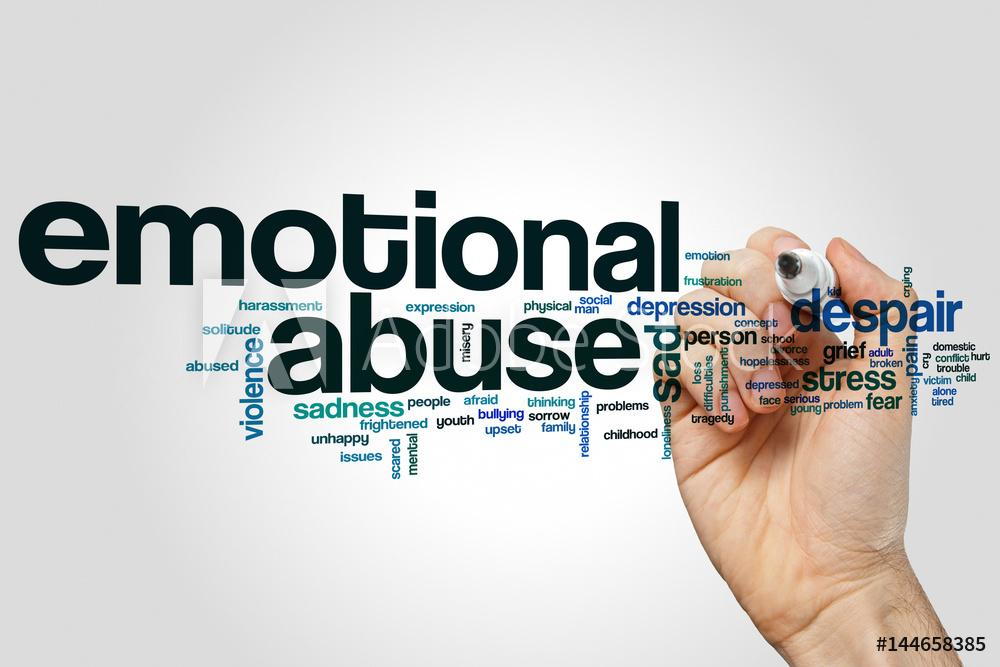Child Emotional Abuse and It's Long Term Effects
When people speak about child abuse the focus tends to be on sexual and physical abuse because the symptoms and scars of those types of abuse are quite visible. What people including the victims are unable to see are the effects of emotional abuse and/or neglect. The outcomes are often just as bad and there have been circumstances in which infants suffering from neglect actually died. Those deaths were not a result of being starved or exposed to the elements but of not being held, cuddled and played with this. In many of these examples and most certainly in the example of emotional abuse the perpetrators are parents or parental surrogates.
According to the Mayo Clinic emotional abuse is defined and characterized as:
- Emotional abuse. Emotional child abuse means injuring a child's self-esteem or emotional well-being. It includes verbal and emotional assault — such as continually belittling or berating a child — as well as isolating, ignoring or rejecting a child.
There are dangerous symptoms that accompany emotional abuse on the part of parents. Among those are:
- Delayed or inappropriate emotional development
- Loss of self-confidence or self-esteem
- Social withdrawal or a loss of interest or enthusiasm
- Depression
- Avoidance of certain situations, such as refusing to go to school or ride the bus
- Desperately seeks affection
- A decrease in school performance or loss of interest in school
- Loss of previously acquired developmental skills
- During teen years, delinquency
- Drug and alcohol abuse
- Lastly and most significantly are self-cutting and suicide.
Examples of Verbal and Emotional Abuse:
- Name-calling, belittling, swearing, insulting. ("You are stupid." "You're a rotten kid.")
- Indirect criticism, such as disparaging your child to your spouse, also hurts. Just because you're not berating your child directly doesn't mean he doesn't hear it and feel the sting.
- Rejecting or threatening with abandonment. ("I wish you'd never been born." "I should put you up for adoption.") This kind of verbal abuse creates a sense that your child isn't wanted in the family.
- Threatening bodily harm. Studies have linked verbal aggression and physical aggression: A Harvard study found, for example, that "parents who yell frequently are the ones most likely to hit frequently, and vice versa." Even if you don't act on violent threats, they may make your child fear and distrust you.
- Scapegoating or blaming. ("You're the reason this family is such a mess." "If I didn't have to take care of you, I could have a better life." "If you weren't so clumsy, your sister wouldn't have gotten hurt.") Your child will think he's a bad person who deserves to be unhappy.
- Using sarcasm. Making a mocking remark, such as "Now that was smart" when he spills juice on the rug, might seem like a way to avoid direct criticism, but your child is perceptive enough to understand that you're demeaning him.
- Berating your spouse. A study at the University of Maryland, Baltimore County, determined that children who see their parents verbally abusing each other are more likely to be depressed or anxious, and to experience more interpersonal problems of their own. Interestingly, the study also found that verbal aggression between parents was more traumatic to children than physical violence between parents.
Although Freud seems to be out of fashion these days he did point out something he called the repetition compulsion. What that refers to is that we repeat the self-defeating behaviors learned long ago and continue to do so. In terms of popular parlance it goes something like this: "The more you do what you did, the more you get what you got." In other words, those children who were abused, either physically, verbally or emotionally are likely to be people who continue to seek the same type of victimization in which they find friends and romantic partners who continue to treat them abusively. The other alternative is that they victim becomes the victimizer who bullies friends, family and lovers.
At the other end of that unfortunate spectrum are those who were so traumatized that they avoid social interaction as much as possible. If they hold jobs, they are usually low paying and well beyond their native ability and/or self isolate because they trust no one.
Fortunately, help is available. Please contact me via Email or phone call. My Email address is: [email protected]. My phone number is: 720-470-2028. I do provide distance therapy via Iphone, Skype or other video platforms. Therapy is safe, warm and supportive.

